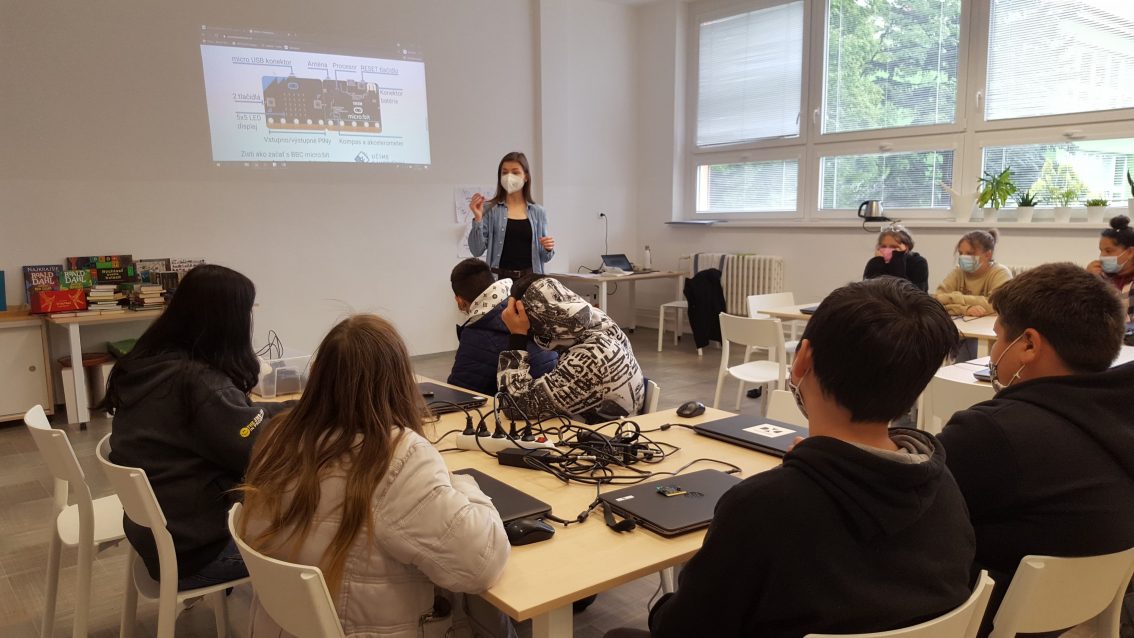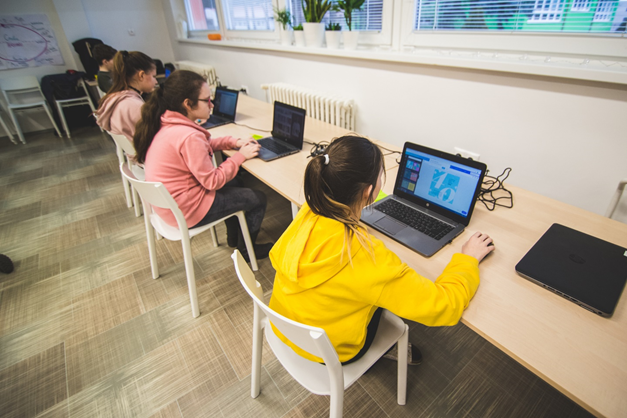Digital skills are the skills of the future. The results of the testing confirmed that there is a great need to develop them
The pandemic has revealed the need to develop digital skills in children. Although an improvement would be expected after a year of distance learning, their test results in Slovakia turned out worse than the previous year. Schools that are active in digital skills and have tailored their educational content achieved better results. Linking knowledge with practice is crucial.
A record 45,000 people took part in the 10th year of the IT Fitness Test, the largest test of digital skills in Slovakia, implemented by the Digital Coalition. The test was used at primary, secondary and tertiary schools. The authors of the test summarised their findings in the final report, pointing out not only to the deterioration of the results in IT but also to worsened application of the acquired knowledge in practice. The experts recommend that schools combine theoretical knowledge with practical skills.
A FOCUS survey for the Telekom Endowment Fund at the Pontis Foundation, conducted in 2019, showed similar results. Children spend a lot of time in the online world, but they do not spend it effectively. They know how to play games and chat online. But only 4 out of 10 children can easily create a spreadsheet or presentation. There is an even greater gap in the knowledge of children from socially disadvantaged households. More than half of them have trouble finding information when doing their homework.
“Digital literacy does not only involve the ability to work with computers. Digitally literate people can use technology to their advantage and make their work more efficient. They know the pitfalls of the online world, they can find information and assess its truthfulness,” explains digital skills expert and co-founder of Mini Tech Institute Eva Klimeková, adding: “Technical awareness and digital skills are among the essential requirements necessary for finding a job in the current labour market. Almost every industry is being digitised.”
How do we develop digital skills through the Open Future programme?
The Pontis Foundation’s Open Future programme is intended for children aged 11 to 15. It responds to the need to develop digital skills. Besides digital skills, the programme also develops soft skills and entrepreneurship. The guarantor for the area of digital skills is E. Klimeková. When creating the content, she focused mainly on the issue of the effective and safe use of digital technologies.

Presentation of micro:bits in the Open Future centre in Trnava
Within the development of digital skills, the curriculum is divided as follows:
In the first year, the programme focuses mainly on getting children acquainted with digital technologies and basic computer work, which the pupils will use not only in our programme but also at school. “The first year is designed for the pupils to “catch up” with their peers who already have had experience with technology, as well as to overcome fear and reduce uncertainty,” explains Klimeková. The second year focuses on the development of algorithmic thinking. The children code using Scratch and create interesting projects with micro:bits. At the end of the second year, the participants create a functional prototype of their project.
The further development of the project continues in the third year. We will add information on the website creation and visual identity into the curriculum. There is also a space to get acquainted with technologies, such as 3D printing, artificial intelligence, virtual reality, blockchain, the Internet of Things and robotics.
The three-year-long Open Future programme focuses on developing entrepreneurial, digital and soft skills. Participants then apply these in the third year, during which they have to come up with a solution to a problem they see in their communities. Throughout the programme, the pupils are accompanied by experienced mentors as well as guests from the world of business and culture. The Pontis Foundation opened the first Open Future centre in Trnava in 2019. This year, another centre was opened in Zvolen.
The Slovak Telekom Endowment Fund, the main partner of the programme, supported the development of the unique methodology of the Open Future.






